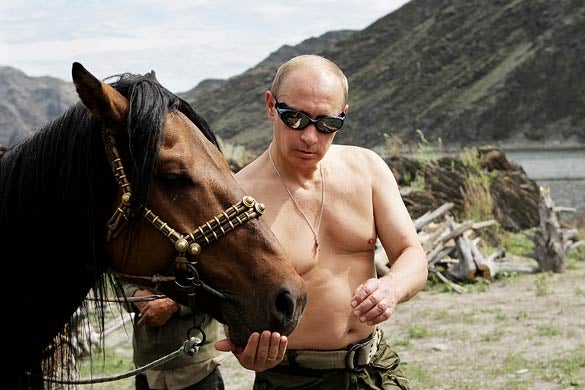And it’s not just Russia. The same trend holds true for Iran, Syria, Venezuela, Nicaragua and other countries and movements that have fallen onto the U.S. government’s “enemies list.” We saw the same pattern with Saddam Hussein and Iraq before the 2003 U.S. invasion; with Muammar Gaddafi and Libya before the U.S.-orchestrated bombing campaign in 2011; and with President Viktor Yanukovych and Ukraine before the U.S.-backed coup in 2014.
That is not to say that these countries and leaders don’t deserve criticism; they do. But the proper role of the press corps – at least as I was taught during my early years at The Associated Press – was to treat all evidence objectively and all sides fairly. Just because you might not like someone doesn’t mean your feelings should show through or the facts should be forced through a prism of bias.
In those “old days,” that sort of behavior was deemed unprofessional and you would expect a senior editor to come down hard on you. Now, however, it seems that you’d only get punished if you quoted some dissident or allowed such a person onto an op-ed page or a talk show, someone who didn’t share Official Washington’s “group think” about the “enemy.” Deviation from “group think” has become the real disqualifier.
Yet, this conformity should be shocking and unacceptable in a country that prides itself on freedom of thought and speech. Indeed, much of the criticism of “enemy” states is that they supposedly practice various forms of censorship and permit only regime-friendly propaganda to reach the public.
But when was the last time you heard anyone in the U.S. mainstream say anything positive or even nuanced about Russian President Putin. He can only be portrayed as some shirtless buffoon or the devil incarnate. Former Secretary of State Hillary Clinton got widespread praise in 2014 when she likened him to Hitler...
Robert Parry, consortiumnews.com
Thankfully the gay media doesn't do this sort of thing.
If you just go 'LIKE HITLER!', you've already lost the debate.






Excellent article. Most newspapers nowadays are propaganda rags, whose journalists sped most of their time cut and pasting press releases from PR firms. TV/Radio continually pump out mainstream opinion and their idea of investigative journalism seems to be stowing hidden cameras in clothing to catch stressed, exploited employees saying or doing bad things in the struggle to keep their low paid jobs
ReplyDelete